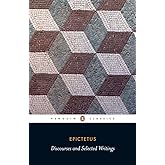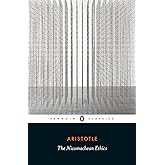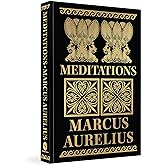
Amazon Prime Free Trial
FREE Delivery is available to Prime members. To join, select "Try Amazon Prime and start saving today with FREE Delivery" below the Add to Cart button and confirm your Prime free trial.
Amazon Prime members enjoy:- Cardmembers earn 5% Back at Amazon.com with a Prime Credit Card.
- Unlimited FREE Prime delivery
- Streaming of thousands of movies and TV shows with limited ads on Prime Video.
- A Kindle book to borrow for free each month - with no due dates
- Listen to over 2 million songs and hundreds of playlists
Important: Your credit card will NOT be charged when you start your free trial or if you cancel during the trial period. If you're happy with Amazon Prime, do nothing. At the end of the free trial, your membership will automatically upgrade to a monthly membership.

Download the free Kindle app and start reading Kindle books instantly on your smartphone, tablet, or computer - no Kindle device required.
Read instantly on your browser with Kindle for Web.
Using your mobile phone camera - scan the code below and download the Kindle app.

The Art of Happiness (Penguin Classics) Paperback – December 24, 2012

Explore your book, then jump right back to where you left off with Page Flip.
View high quality images that let you zoom in to take a closer look.
Enjoy features only possible in digital – start reading right away, carry your library with you, adjust the font, create shareable notes and highlights, and more.
Discover additional details about the events, people, and places in your book, with Wikipedia integration.
Purchase options and add-ons
The teachings of Epicurus—about life and death, religion and science, physical sensation, happiness, morality, and friendship—attracted legions of adherents throughout the ancient Mediterranean world and deeply influenced later European thought. Though Epicurus faced hostile opposition for centuries after his death, he counts among his many admirers Thomas Hobbes, Thomas Jefferson, Karl Marx, and Isaac Newton. This volume includes all of his extant writings—his letters, doctrines, and Vatican sayings—alongside parallel passages from the greatest exponent of his philosophy, Lucretius, extracts from Diogenes Laertius' Life of Epicurus, a lucid introductory essay about Epicurean philosophy, and a foreword by Daniel Klein, author of Travels with Epicurus and coauthor of the New York Times bestseller Plato and a Platypus Walk into a Bar.
For more than sixty-five years, Penguin has been the leading publisher of classic literature in the English-speaking world. With more than 1,500 titles, Penguin Classics represents a global bookshelf of the best works throughout history and across genres and disciplines. Readers trust the series to provide authoritative texts enhanced by introductions and notes by distinguished scholars and contemporary authors, as well as up-to-date translations by award-winning translators.
- Print length251 pages
- LanguageEnglish
- PublisherPenguin Classics
- Publication dateDecember 24, 2012
- Grade level12 and up
- Reading age18 years and up
- Dimensions5.11 x 0.74 x 7.75 inches
- ISBN-100143107216
- ISBN-13978-0143107217
Book recommendations, author interviews, editors' picks, and more. Read it now.
Frequently bought together

More items to explore
Editorial Reviews
About the Author
Product details
- Publisher : Penguin Classics; Reissue edition (December 24, 2012)
- Language : English
- Paperback : 251 pages
- ISBN-10 : 0143107216
- ISBN-13 : 978-0143107217
- Reading age : 18 years and up
- Grade level : 12 and up
- Item Weight : 7.2 ounces
- Dimensions : 5.11 x 0.74 x 7.75 inches
- Best Sellers Rank: #34,625 in Books (See Top 100 in Books)
- #8 in Epistemology Philosophy
- #107 in Ancient Greek & Roman Philosophy
- #647 in Happiness Self-Help
- Customer Reviews:
About the author

Discover more of the author’s books, see similar authors, read book recommendations and more.
Customer reviews
Customer Reviews, including Product Star Ratings help customers to learn more about the product and decide whether it is the right product for them.
To calculate the overall star rating and percentage breakdown by star, we don’t use a simple average. Instead, our system considers things like how recent a review is and if the reviewer bought the item on Amazon. It also analyzed reviews to verify trustworthiness.
Learn more how customers reviews work on AmazonCustomers say
Customers find the book easy to read and clear. They appreciate the down-to-earth philosophy, which covers all aspects of Epicurean philosophy. However, some readers feel that it provides more epistemology than ethics.
AI-generated from the text of customer reviews
Customers find the book readable and clear for lay readers unfamiliar with philosophical prose. They appreciate the long introduction and the foreword. The translation is faithful to the original language but readable by modern readers. The explanations and overviews are also appreciated.
"...This translation is pretty good for the layman unfamiliar with philosophical prose. The forward is long, well written, and easy to understand." Read more
"...Professor Strodach also provides an extensive Introduction and learned Notes that make up the bulk of the book...." Read more
"Lots of preface and introduction, it’s like half the book.." Read more
"...For those interested, its a fine book to read but if you want something more practical, you're better off looking elsewhere...." Read more
Customers find the philosophy down-to-earth and covering all aspects of Epicurean philosophy. They appreciate learning about Epicureanism from its roots. The book has interesting propositions, but is written in a dry style. It outlines the search for a good life according to Epicurus.
"...A beautiful, sharp metaphysics of atomism, a materialism of contingency and difference, Epicurus demolishes the self and sends you into a charming..." Read more
"...covers such things as his theory of atoms, sensation, knowledge, and religion (with a wonderful excursion into theories of meteorology)...." Read more
"...the book is Strodach's extensive introduction, which covers all aspects of Epicurean philosophy, as well as its later rendition by the Roman poet..." Read more
"...so astonishingly badly done that it amounts to an unintentional parody of academic incompetence, something nabokov might fabricate for the finical mr..." Read more
Reviews with images
Arrived dirty
Top reviews from the United States
There was a problem filtering reviews right now. Please try again later.
- Reviewed in the United States on December 7, 2024Used book arrived in very good shape. This translation is pretty good for the layman unfamiliar with philosophical prose. The forward is long, well written, and easy to understand.
- Reviewed in the United States on December 19, 2022A collection of Epicurus' surviving works. Known best for his therapeutic approach to anxiety and death, the Epicurean school developed tools for the hedonistic acquisition of pleasure. A beautiful, sharp metaphysics of atomism, a materialism of contingency and difference, Epicurus demolishes the self and sends you into a charming swirl of pleasures and dispositions.
- Reviewed in the United States on March 10, 2013This is Penguin Classics's re-issue of "The Philosophy of Epicurus: Letters, Doctrines, and Parallel Passages from Lucretius" published in 1963. The Art of Happiness (Penguin Classics) has a new foreword by Daniel Klein, author of the very good related book Travels with Epicurus: A Journey to a Greek Island in Search of a Fulfilled Life. The foreword is excellent and the translation by George Strodach is very readable and clear.
Professor Strodach also provides an extensive Introduction and learned Notes that make up the bulk of the book. Most of the actual writings of Epicurus and his students have to do with epistemology and metaphysics rather than the art of happiness, the putative subject of the book. This material is interesting - it covers such things as his theory of atoms, sensation, knowledge, and religion (with a wonderful excursion into theories of meteorology). The actual writings on how to live a good life, what we might refer to as his ethics, is a very small portion of the book.
However Strodach's Introduction and Notes are scholarly and eccentrically entertaining. He offers a condemnation of religion that is very miuch like the writings of what are characterized as The New Atheism - writers such as Dawkins and Hitchens - and concludes that religion's net effect on humanity is negative. He also offers an unexpected defense of UFO's.
If you are interested in the Epicurean approach to the good life, I recommend reading Klein's book instead of this one. If you are interested in reading the original source material on Epicurus for an insight into ancient Greek thought, this is an excellent textbook.
- Reviewed in the United States on October 10, 2020Lots of preface and introduction, it’s like half the book..
- Reviewed in the United States on March 12, 2022I received the book when I was supposed to, and it was exactly what I expected it to be.
- Reviewed in the United States on August 30, 2013I had to read this for an undergraduate course at Georgetown University. I ended up buying additional copies to give as gifts.
This is one text for school I have actually re-read on my own time, and I get something new out of it each reading.
Highly recommend.
- Reviewed in the United States on March 2, 2017To think about what the giants of those days were thinking about .... we have slid back instead of forward in THIS millenium... so far. G Kossow
- Reviewed in the United States on January 15, 2024First off, I would like to say that I began looking for reading material that will facilitate ideas about how best to re-frame the mind into a consistent positive outlook on everyday life. With that said, I found some intrigue into reading about epicurean philosophy and simply going with the "flow" of life, all good but this book has little of it, if you're looking to gain some enlightening insight, there are better books out there. As others have mentioned, it delves more into how atoms and/or molecules might have a basis for our actions and decisions we make on a day to day. I personally liked some ideas presented here but does not have sufficient content to quench the mind for knowledge. Real shame that, from what I perceive, is that there might have been far more elaboration into Epicurus philosophy about attaining what he called: Ataraxia(serene calmness). For those interested, its a fine book to read but if you want something more practical, you're better off looking elsewhere. My advice is look into other philosophers dealing with stoicism.
Top reviews from other countries
 Alarico De SenaReviewed in Australia on April 6, 2024
Alarico De SenaReviewed in Australia on April 6, 20245.0 out of 5 stars Pleasure is free from pain physically and mentally!
It is the first and the very best philosophy book I have ever read in my life. It teaches about happiness and how the universe and other organisms were created. Epicurus is a legend!
 SallyReviewed in the United Kingdom on February 16, 2015
SallyReviewed in the United Kingdom on February 16, 20155.0 out of 5 stars Brilliant - one of those books you'll want to read ...
Brilliant - one of those books you'll want to read again and again. It reads in a very modern way (thanks to the excellent translation) and confronts lots of the issues that people struggle with today - how to live happily and ethically in a corrupt world where politics and politicians have disappointed us all. Not a complete answer but a good philosophy to be going on with.
 MariaReviewed in the United Kingdom on January 5, 2024
MariaReviewed in the United Kingdom on January 5, 20245.0 out of 5 stars brilliant1
It was a present so great that arrived on time. Great service at the post office point collection.
Thank you
 AmazonionReviewed in Canada on May 25, 2021
AmazonionReviewed in Canada on May 25, 20211.0 out of 5 stars Can’t Recommend
Long introduction where author appears drifting and the rest is the excerpts from the “Life of Epicurus”.
 Dr L HapgoodReviewed in the United Kingdom on August 14, 2014
Dr L HapgoodReviewed in the United Kingdom on August 14, 20145.0 out of 5 stars Five Stars
A very useful collection with an excellent introduction.













